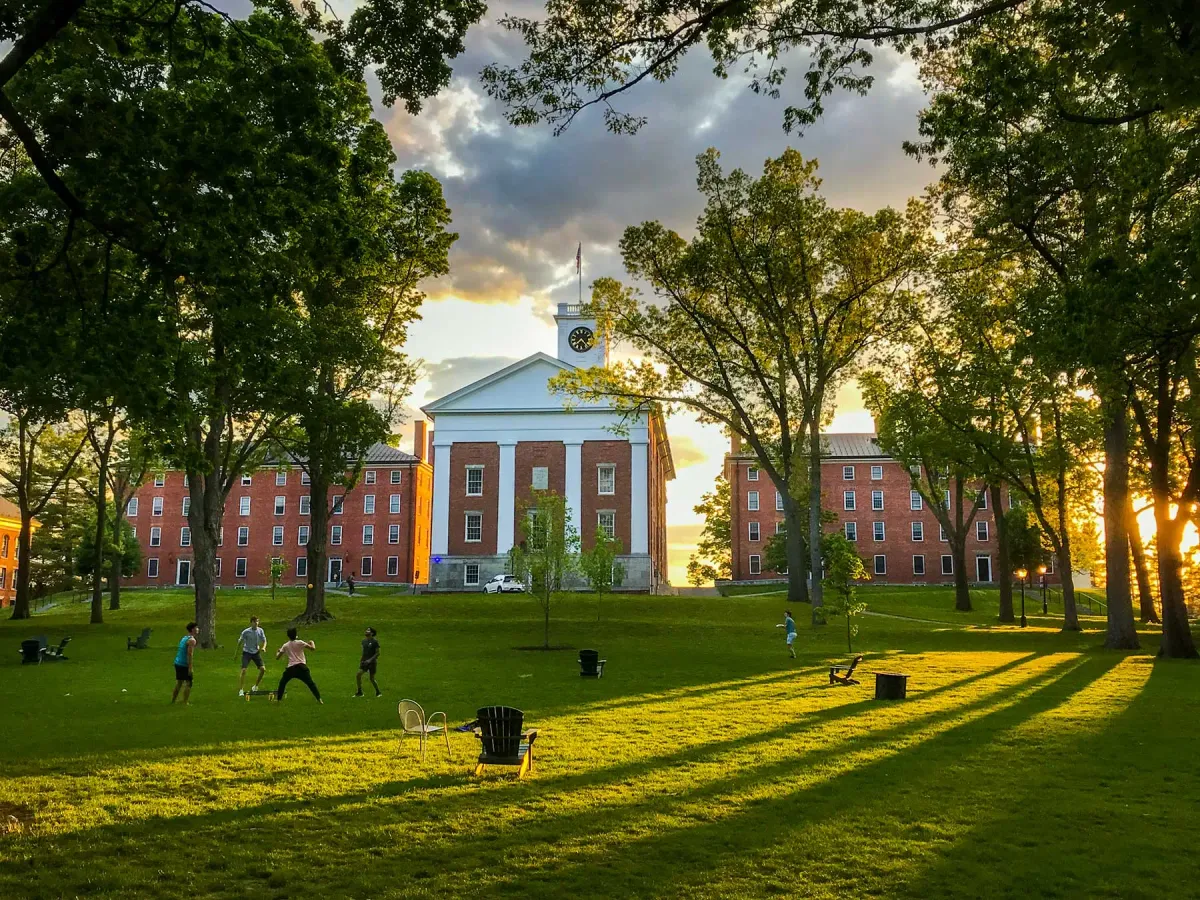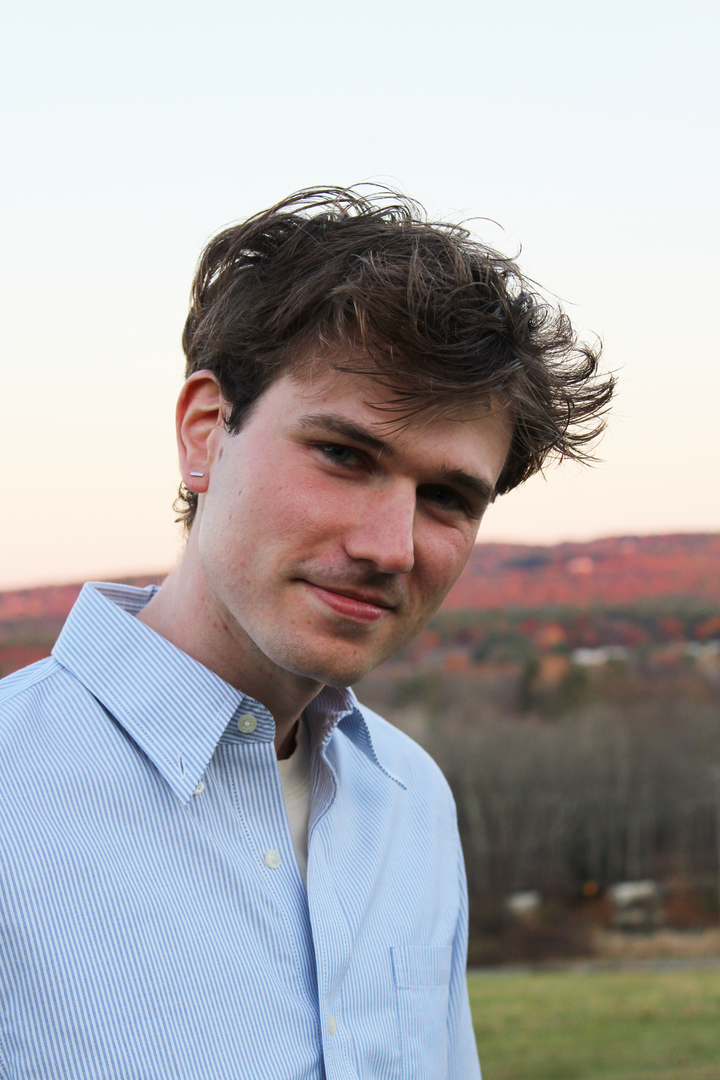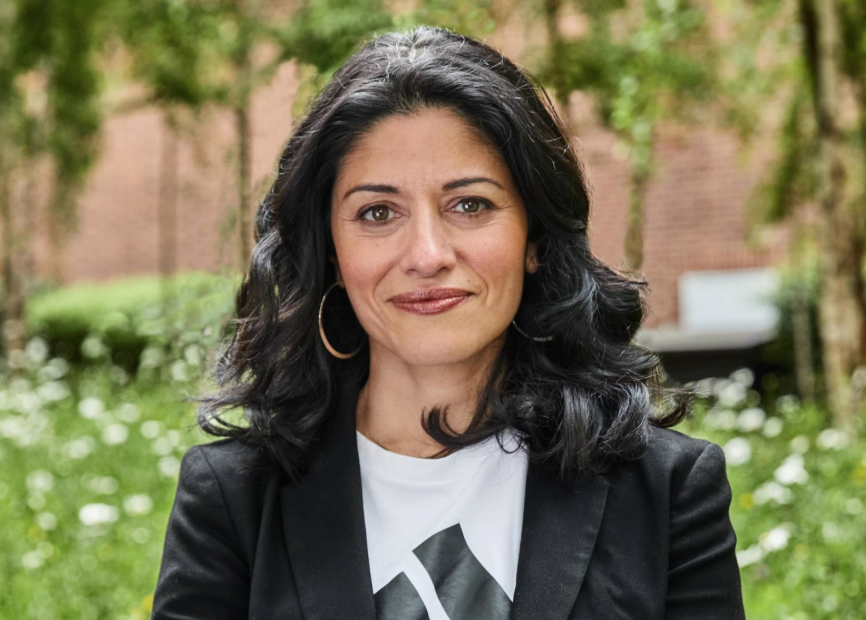Political Action Clubs Regroup Post-Election
Managing Design Editor Anna Wang ’28 spoke with the campus political groups about their efforts leading up to the election and their plans moving forward, highlighting the work of Amherst College Democrats, Amherst College Conservatives, and Reproductive Justice Alliance.

As the 2024 presidential election continues to spark concern and discussions around campus, political action groups have been reflecting on their preelection efforts and making plans to move forward.
Amherst College Democrats, a club that became active in September after a two-year hiatus, organized canvassing efforts for Vice President Kamala Harris in New York and New Hampshire leading up to the election. Club leaders Henry Pallesen ’25 and Isabella DePreist-Sullivan ’27 found the experience meaningful because it helped them personally connect with voters.
“I think [canvassing] is really effective. People might not remember everything that you said, but they remember that somebody came from this campaign to talk to you,” DePriest-Sullivan said. “Because a lot of voters don’t know [all the candidates], people will look at the ballot and pick who they know. I think having a human conversation about candidates helps a lot.”
While feeling inspired by their work off-campus, Pallesen and DePreist-Sullivan noticed a lack of political awareness and action on campus, a culture they found similar to many other liberal arts colleges.
“We live in Massachusetts, and I think at times if you don’t live in a battleground state, there’s a tendency towards apathy,” Pallesen said. “We hope to provide a way for blue-state people to engage [with politics] and feel like they actually have a purpose in affecting a political outcome.”
Following the news of Trump’s cabinet appointments, which they called “outlandish,” Pallesen and DePreist-Sullivan plan to shift Amherst College Democrats’ future efforts towards directing people to local elections, especially special elections in Congress that may lead to potential Democrat upsets, as well as local issues such as housing and zoning.
“The local issues are where students could have sway when they vote,” DePreist-Sullivan said. “I want to focus on finding out what local issues we could get people on campus to care about and really engaging with our community to figure out what issues we could get involved in.”
Amherst College Conservatives, formerly known as Amherst College Republicans, reemerged recently after many years of silence. Now, the club hosts biweekly discussions to foster political exchange. To Jeb Allen ’27, a co-president of the club, the renaming represents a shifting of objectives.
“When Trump was nominated in 2016, I know for a fact that the Amherst College Republicans did not endorse him,” Allen said. “I would say the Republican Party is dead now. It is the Trump party, the MAGA party. We are not defending political candidates — that is not our intention. It’s to talk about the principles that we believe our government should be embracing.”
According to Allen, most of Amherst College Conservatives’ preelection efforts centered around providing a discussion space for those who don’t feel comfortable expressing their political views.
“A lot of people at Amherst, especially conservatives, do not feel as if they can voice their opinion,” Allen said. “I think it’s terrible that people feel that way. It’s not fair that people can’t talk to other like-minded people about what they believe.”
One of Amherst College Conservatives’ recent discussions focused on whether or not it would be best for the Republican Party for Trump to win. Allen noticed that while some were happy that Trump won, others were somewhat disappointed. Allen hopes the club will foster a better sense of understanding and compassion from conservatives for people who are upset with the election results.
“What I remind my friends is that if you truly care about conservatism, or the future of the Republican Party, or the future of America, you will have empathy towards others instead of [rubbing it in],” Allen said. “My goal is to move [towards] some form of unity and cohesion, and [for there to be] more empathy between both parties for each other.”
With that goal in mind, Allen is working with Pallesen and DePreist-Sullivan to host an open discussion between Amherst College Conservatives and Amherst College Democrats, hoping to show that, in Allen’s words, “We are not enemies.”
To the Reproductive Justice Alliance (RJA), which co-organized a rally on Nov. 8 that expressed “anger and grief” over Trump’s reelection, it is important to acknowledge feelings of despair about the incoming administration’s reproductive health policies, which are likely to be hostile to abortion and birth control access.
“If you don’t address those feelings, you don’t feel like making any kind of change anymore,” RJA president Gracie Rowland ’25 said. “By holding a space like the rally last Friday, I believe that we were able to have a sense of community [and] a sense of catharsis. And I think that catharsis is incredibly important for the work that remains ahead of us.”
Next semester, RJA plans to invest more time in advocating against crisis pregnancy centers — clinics that provide false information about abortion to pressure women into continuing pregnancy — and engage with activists who specialize in this field. With Trump’s administration “becoming a reality,” Rowland and RJA’s vice president Julia Santos ’25 are also working towards encouraging students to reach out to their state representatives and voice their concerns about reproductive health, in addition to partnering with the Women’s and Gender Center to raise awareness about on-campus resources.
“It’s important to have both that heightened awareness of what reproductive health care is available on campus, but also what [you can] do for your home state in case abortion is something that you do not have access to,” Santos said.
When asked about whether they wish RJA could have done anything differently, Rowland and Santos agreed on a simple answer: Look ahead, not behind.
AC Votes, having been placed under the Center for Community Engagement (CCE)’s oversight since this semester, had staff and students at tablings throughout the semester to keep students informed of voter registration deadlines. According to Maida Ives, associate director of community partnerships and civic engagement, AC Votes hopes to improve in the following years.
“In a few years, we’ll be able to see data about voter turnout on campus,” Ives said. “We have some great new processes in place to help students remember to register and update their voter registration as needed: a prompt on Workday, a partnership with the Post Office, and a transition plan to weather staff or student leadership turnover.”





Comments ()